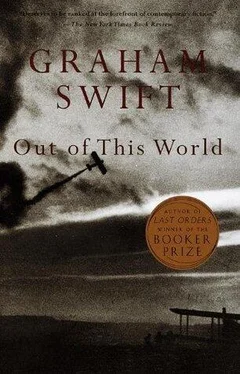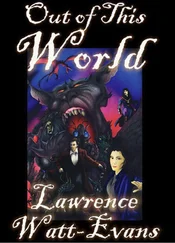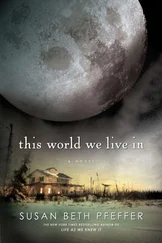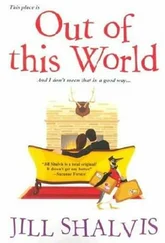Graham Swift - Out of This World
Здесь есть возможность читать онлайн «Graham Swift - Out of This World» весь текст электронной книги совершенно бесплатно (целиком полную версию без сокращений). В некоторых случаях можно слушать аудио, скачать через торрент в формате fb2 и присутствует краткое содержание. Год выпуска: 2012, Издательство: Vintage, Жанр: Современная проза, на английском языке. Описание произведения, (предисловие) а так же отзывы посетителей доступны на портале библиотеки ЛибКат.
- Название:Out of This World
- Автор:
- Издательство:Vintage
- Жанр:
- Год:2012
- ISBN:нет данных
- Рейтинг книги:3 / 5. Голосов: 1
-
Избранное:Добавить в избранное
- Отзывы:
-
Ваша оценка:
- 60
- 1
- 2
- 3
- 4
- 5
Out of This World: краткое содержание, описание и аннотация
Предлагаем к чтению аннотацию, описание, краткое содержание или предисловие (зависит от того, что написал сам автор книги «Out of This World»). Если вы не нашли необходимую информацию о книге — напишите в комментариях, мы постараемся отыскать её.
Out of This World — читать онлайн бесплатно полную книгу (весь текст) целиком
Ниже представлен текст книги, разбитый по страницам. Система сохранения места последней прочитанной страницы, позволяет с удобством читать онлайн бесплатно книгу «Out of This World», без необходимости каждый раз заново искать на чём Вы остановились. Поставьте закладку, и сможете в любой момент перейти на страницу, на которой закончили чтение.
Интервал:
Закладка:
We came face to face in the drawing-room as the whole thing was winding up. People were leaving, moving to their cars, and Frank was saying, ‘Go now, Sophie. You’re exhausted. You’ve been marvellous.’ (Never performed better.) ‘You don’t have to stay to the very end.’ (So what end was that?) And Joe saying, as if he were actually standing there waving like some magic wand, in case I’d forgotten, two tickets to New York, two tickets to the Promised Land: ‘Let’s go, let’s go.’ Let’s slip away, just you and I, from the party.
It’s easy, it’s simple: you just go away. You just make sure you’re not at the scene. You just don’t be there.
He looked stranded. So what’s the matter, Harry, no home to go to? He held his arms outwards, like a pair of useless wings. I know what he wanted. He wanted to embrace me. So it would look right, there in front of everyone. Life is an act, isn’t it? Life is a real act. For a moment, a deliberate moment, I let him flap his arms like that. And there was Harry Beech, so in his element wherever the action was, so always pressed up against the window of the news trying to get in, floundering, sinking, amongst the tea cups and sherry glasses in an English drawing-room. I said to myself: You’re never going to see, you’re never coming near your grandchild. Then I put out my hand. I saw the look in his eyes. He took it, pressed it. And I said, ‘Goodbye. Harry.’
Father, Dad, Daddy.
Harry
A hero’s death. A martyr’s death.
A hero chooses. A martyr chooses.
As if he had known. As if he had stepped out that morning and got into the Daimler with the express purpose of risking his life against the forces of terrorism. But didn’t he do that every day? As a manufacturer and supplier of arms — to, amongst others, our lads in Ulster — wasn’t he always putting himself in the exposed and dangerous front line? And let’s have no shilly-shallying and no moral niceties. We need arms for our defence. We need arms to maintain law and peace.
Cut to 1941. A rare, brief clip of Robert Beech in a factory yard with Mr Winston Churchill (grey bowler, cigar primed). Factory girls, with head scarves, in the background, jostling and grinning — one waves a tiny Union Jack. Mr Churchill congratulates ‘Bob’ Beech on his production achievement. (A photo of the same scene, with the Churchill signature, framed, above his office desk in London.)
Cut to R.B. with Max Beaverbrook and Royal Ordnance directors outside sandbagged offices of the Ministry of Supply.
Cut, by way of photo-library material, to 1875. Beech Munitions Company founded. First factory near Woking, Surrey. Early work in the development of the steel-cased shell and the use of cordite propellant and lyddite filling. Also in small-arms engineering. Beech armaments used in the Sudan and South Africa. Cut — cut (representative material: howitzers at Omdurman; Mafeking celebrations). Cut to group photo of Sandhurst cadets, circa 1916: Bob Beech amongst — second row left, blurred. Cut to all-purpose Western Front footage. ‘In 1918 …’
There was the potent and self-damning irony of the I.R.A. choosing for their target an arms manufacturer. Since terrorists themselves, by definition, required arms, which had to be made by someone. An irony duly exploited but not over-stressed. Since it led, in one direction, to the spectre of the arms-maker as the patron of terrorism, a mercenary among mercenaries — hardly appropriate to a company which was by now virtually an agency of the Ministry of Defence. Which begged in turn the question of what other fields BMC was now operating in, and what exactly was its area of development. The impression was given that it was still churning out good old unobjectionable bullets for latter-day Tommy Atkinses. But — nothing ill of the dead.
And in answer to those coolly liberal elements who might have said (all things being equal, and without wishing to condone the I.R.A.), Why the fuss? If you deal in that trade, if you live by the sword — Ah yes, but he did live by the sword and he was prepared to die. He was, as we all know, a hero already. A Victoria Cross and a tin arm. A life member of the valour club. And who had a better right to make and trade in arms (no obvious puns please) than a decorated ex-soldier who had sacrificed a limb in his country’s service?
A hero. He sat on ten pounds of gelignite.
And should you be getting too warlike a picture, consider the campaigner of peace.
Cut to period photos of: the new (‘Robert Beech’) Wing (Amputees’ Rehabilitation Centre) of the King George Hospital at Guildford, Surrey, opened 1925; the façade of the Institute for Artificial Limb Research at Chiswick, west London, established 1929. His involvement in medical research was not widely known. Particularly in the field of prosthesis and surgical reconstruction, where his own personal trauma (he himself was an enthusiastic guinea-pig) was naturally a prime motive. But the objects of Beech benevolence, to mention only the medical ones, were many and diverse, ranging from obstetrics to heart research (he suffered a near-fatal heart attack in 1945; was fitted with a pacemaker in 1968), and from plastic surgery to the funding of a company — virtually a Beech subsidiary — which specialized in the development of electrically powered wheelchairs and other invalid aids. Charity begins at home, and travels in strange ways, and it would be unfair to point out that numerous beneficiaries of Beech patronage, from hospital patients to schoolchildren, might have been surprised to learn what was the original source of their succour.
Cut to village children on the lawn at Hyfield, mid 1930s (local press material). Cut to local worthies with R.B. on same lawn, same period. Cut to general view of the house and grounds — ‘his home for nearly fifty years’. Intersperse with film of the bomb-damaged façade, April 1972. Cut to shot of R.B. as parliamentary candidate, 1935. Voice-over quoting from election speech. Brief sequence illustrating impercipience of Baldwin and Chamberlain governments. A gentleman, a true Englishman of the old school, but not afraid to speak his mind or challenge the mood of the time, and no enemy of the modern. Cut to film (last known footage, by proficient amateur) of after-dinner speech, November 1969. He jokes about his pacemaker: ‘Soon I will be all spare parts.’ He speaks of the ‘courage’ (he uses that word) of science in penetrating the ‘strongholds of romance’. The Apollo landings, the cardiac transplant. The moon. The heart.
Bluff old charmer. A still spry public man at over seventy. An enthusiast for the new, but an avowed critic of what he called Britain’s post-war ‘relaxation’, and ever ready throughout his long life to defend the old ways. Even to make the final sacrifice.
Cut.
This was ’72. Ominous times. The flowers of the Sixties faded. The long trough of the new decade yawning. The Irish trouble. And the sense of a new, barbarous world encroaching, a world no longer keeping to its former demarcations, former protocol. Bombs going off in airports, embassies, shopping centres, homes.
You could say they were successful: they eliminated their target. You could say they miscalculated: they erected a monument.
People want stories. They don’t want facts. Even journalists say ‘story’ when they mean ‘event’. Of the news photo they say: Every picture tells a story — worth two columns of words. But supposing it doesn’t tell a story? Supposing it shows only un-accommodatable fact? Supposing it shows the point at which the story breaks down. The point at which narrative goes dumb.
No art. Just straight photography. Avoid beauty, composition, statements, symbols, eloquence, rhetoric, decorum, taste. All that is painting. But just hold open the shutter when the world wants to close its eyes.
Читать дальшеИнтервал:
Закладка:
Похожие книги на «Out of This World»
Представляем Вашему вниманию похожие книги на «Out of This World» списком для выбора. Мы отобрали схожую по названию и смыслу литературу в надежде предоставить читателям больше вариантов отыскать новые, интересные, ещё непрочитанные произведения.
Обсуждение, отзывы о книге «Out of This World» и просто собственные мнения читателей. Оставьте ваши комментарии, напишите, что Вы думаете о произведении, его смысле или главных героях. Укажите что конкретно понравилось, а что нет, и почему Вы так считаете.












